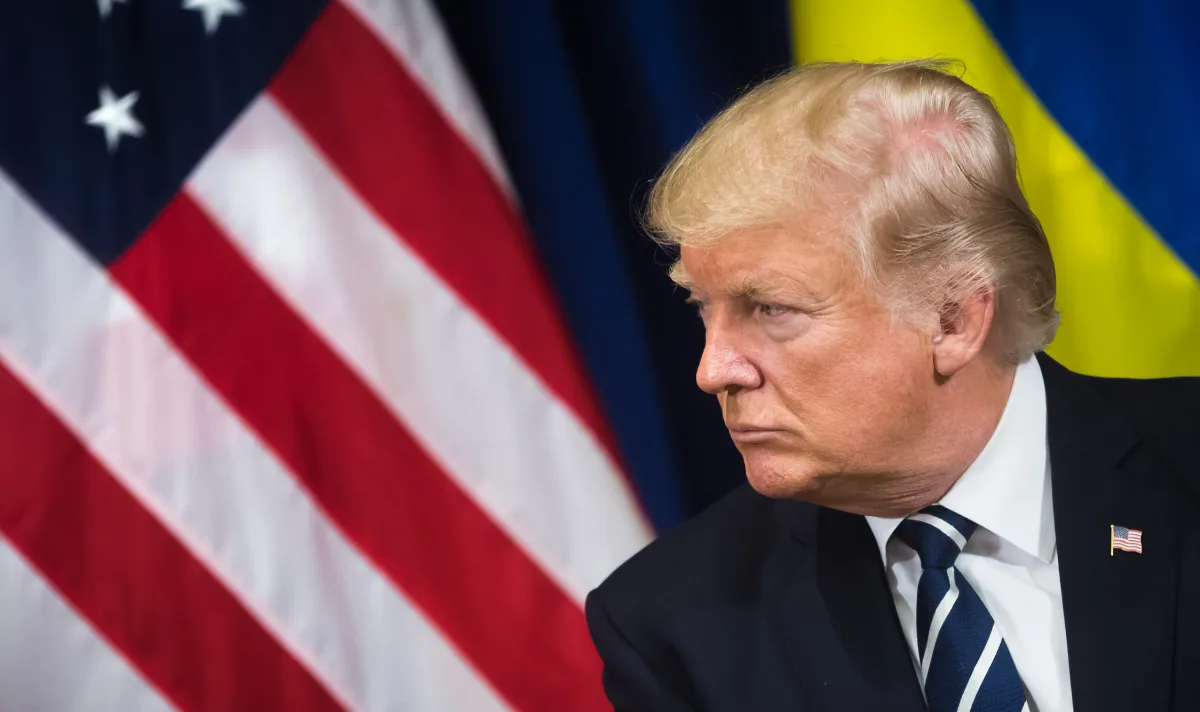Vladimir Putin keeps playing Donald Trump for everything he’s worth, trying to buy time so he can continue his brutal war of aggression against Ukraine, with Kyiv receiving only minimal US support.
The strongman in the Kremlin is dragging things out by exploiting Trump’s obsession with clinching a peace deal fast—something America’s showman-president hopes will flatter his ego and prove to Americans and the wider world that he is a true ‘deal-maker’.
While Russia re-arms and prepares its forces for a summer offensive aimed at seizing more Ukrainian territory, Trump is still holding back US military aid. He hopes this will lure Putin into a ceasefire and ultimately a lasting peace deal. But that twisted logic produces exactly the opposite of what Trump claims he wants.
Like a petty revenge-porn blackmailer, a grubby street thug, or a shrewd yet brutal Mafia boss, Putin respects only strength. The moment you try to show understanding or meet the demands of such unreasonable characters—in the hope of avoiding conflict or reaching compromise—their list of demands grows and the situation worsens. Only when confronted with overwhelming force and the threat of harsh reprisals do they back down.
As Russia’s summer offensive approaches, Trump basically has two options: either let Putin have his way—abandon Ukraine and leave Europe to carry the full burden of the war effort this summer—or do what is needed to help the Ukrainians beat back the coming ‘wave of flesh’, so they stand as strong as possible when new negotiations are likely after the rainy season, once the front lines freeze again.
The choice he makes will have geopolitical consequences far beyond the war in Ukraine. It will define the transatlantic community of values and security for generations—and the West as a philosophical-political idea.
The great test of our time
Americans are right that Europe must re-arm and become more militarily capable. But it isn’t true that the continent has failed to carry its share of the trans-Atlantic burden since the Cold War. In the decades after 2000, European NATO countries supported the United States in the War on Terror—at great cost.
Europe paid dearly for America’s misguided and extraordinarily expensive military adventures, not only in Afghanistan—where roughly 30 per cent of ISAF’s casualties were European—but also in the senseless invasion of Iraq, a war most European nations strongly opposed from the start.
Because of Europe’s geographic proximity to America’s anti-terror wars, the deadly after-effects of these conflicts hit Europe much harder than the United States, through secondary ripple effects.
The real cost of the unstoppable flows of refugees that have washed over the old continent as a direct consequence of US wars is hard to quantify. It surely runs into the trillions of euros, not to mention the enormous social and security challenges that have followed.
Furthermore, for anyone who remembers more than a quarter-century back, the Americans long resisted the idea of European military autonomy and stronger European forces—especially under George W. Bush, when Washington wanted to preserve its military superiority, and thus geopolitical influence, on the continent.
To lash out now at European countries that are finally trying to build serious military capacity is self-defeating.
An existential European question
These issues also depend heavily on priorities set in the White House. According to Brown University’s Costs of War project, the United States spent an estimated 2.3 trillion US dollars on the war in Afghanistan—a country hardly central to core US interests. The Iraq war, also far from a success, cost 2.9 trillion US dollars. Together, the two wars ran to about 5.2 trillion US dollars.
By contrast, the United States has so far spent roughly 175 billion US dollars on Ukraine—about 3.3 per cent of what it burned through in Afghanistan and Iraq. That Washington was willing to pour trillions into Iraq and Afghanistan but hesitates to spend a fraction of that on what is essentially an assault on Europe’s post-1945 security order is, in principle, unforgivable.
Despite some dissenting voices, there is broad political consensus across Europe to support Ukraine’s stand against Russian might. The same now holds true among Americans, where backing for Ukraine has risen sharply since Trump became America’s 47th president. In other words, Trump has the US public behind him to keep supporting Kyiv.
Europe has made it crystal-clear to Washington that major concessions to Russia are not in its interest; such concessions would only whet Moscow’s appetite to launch the next adventure. If Trump now pulls up the ladder and leaves Ukraine’s defence entirely to European countries, that will effectively mean the end of the transatlantic security and values community—with potentially very unpleasant consequences.
Will Europe enter the new era alone?
Even though certain political forces in the West cling to a bygone era, the so-called liberal, rules-based order born after the Second World War is already behind us. A new, raw and cynical world order—based on power politics and the law of the strong—is taking shape. In this reality, interest-based realpolitik defines relations between nations.
Yet even in such a world you need friends to share the security burdens that will inevitably arise, and the question is whether the United States and Europe can stay together. Despite our differences, we are better equipped to handle what lies ahead if we stand united.
But if Trump’s America keeps doubling down on America First and ignores Europe’s core interest—containing a neo-imperialist Russia in its infancy—it is hard to see how we can carry on as before.
For now, Europe will remain militarily dependent on the United States, but the old continent has enormous potential and every opportunity to become a security heavyweight, whatever the ultimate outcome of the war in Ukraine. Americans, in turn, have every interest in having such a partner on their side as the emerging world order finally solidifies.
That leaves the question: Will Trump do what is needed to blunt Putin’s coming thrust into Ukraine? Will he impose the crippling sanctions required and give the Ukrainians what they need to bring this war—and Russia’s neo-imperialist ambitions—to an end once and for all?
The choice he makes in the weeks and months ahead is likely to define the West for generations.
Photo: Dreamstime.







